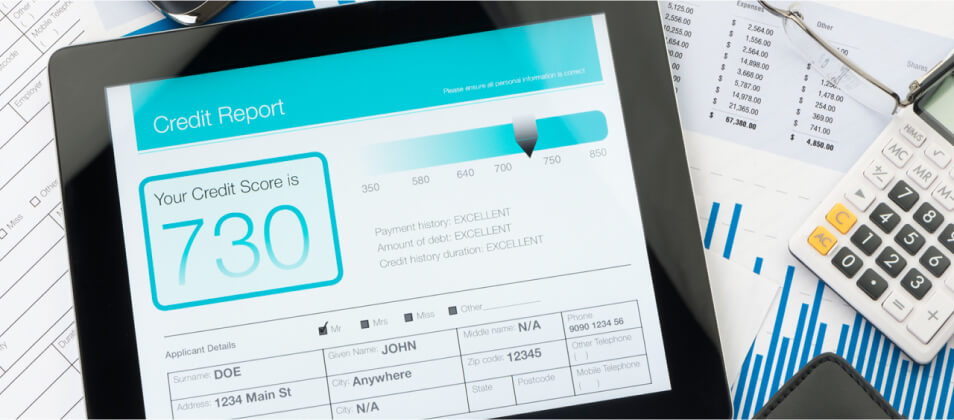Sign up for Funding Circle newsletter!
Get our latest news and information on business finance, management and growth.
Updated: November 19th, 2020

Credit reports from the major bureaus – Experian, Equifax and TransUnion – can differ slightly, depending on the personal data reported to each bureau. That said, the kind of information gathered by each bureau to compile a report is essentially the same. Knowing what’s captured on your credit report, gives you a good sense for the information available to creditors. You will be better positioned to spot red flags, and take action to maintain or improve your credit score.
Credit reports from the three bureaus all show the following information:
Each bureau tracks different amounts of personal data, but the basic information in your profile will generally include your name, birthdate, and a list of current and past addresses. Current and past phone numbers, your employer, your social security number and the span of your credit history, may also be reported.
If you have logged any disputes on information found on your credit report, you can request that a note about the dispute be added to the personal statement of your credit report. Creditors can review it when assessing your creditworthiness. For most consumers, this section is blank.
Your credit summary gives a brief analysis of your credit status, including historical and current accounts by account type. Generally, you should also see a balance for each of your accounts, in this section.
Public records include bankruptcy records, tax liens, court rulings related to monetary issues, and applicable state and county records. In some states, this section can also include overdue child support. It is not uncommon for this section to be blank.
The credit inquiries section shows both “hard” and “soft” inquiries. “Hard” inquiries are from companies that have requested your credit report, in response to an application you’ve submitted for personal credit. Other creditors may consider these hard inquiries when they evaluate your creditworthiness. Hard inquiries may also affect your credit score, especially if you submit several applications in a short period of time.
“Soft” inquiries include self-initiated credit report checks, inquiries related to pre-approved credit card offers, inquiries from financial institutions with regards to to applications for business credit, backgrounds checks and account reviews. Account reviews are requested by companies you already hold an account with. These reviews can result in your credit limit being raised without you making a request. Soft inquiries are considered routine – they do not affect your credit score and you’re the only one who sees them.
Careful review of this section is imperative. If there are inquiries you do not know about, that may have resulted in a negative report on your credit, they will be listed here. Generally, this section will include contact details for the company that made the request; you should get in touch, in such cases, to get this resolved.
Your account history lists each credit account you have in your name. It includes information on the type of credit, the credit limit, the current balance, the date the account was opened, and a 24-month payment history, at least. The payment history details both on-time payments and delayed payments. It will also show the minimum payment due each month, and the amount you actually paid. This section will also show closed accounts.
Each bureau reports this data differently. Experian includes it in the account history section, by by labeling each account as current, potentially negative, closed, or potentially negative and closed. Equifax and TransUnion report negative accounts together with public records and collections information.
If you request a free annual credit report from the major bureaus, the report will not include your credit score. However, if you pay for your report using one of their introductory offers or a monthly credit monitoring program, your credit score will also appear as part of your report.
In addition to the main sections of the report, each bureau also includes the following information:
A credit report gives you a clear idea of what creditors are looking for when assessing your creditworthiness. Periodic monitoring will help you ensure that the picture presented is the best it can be.
Louis DeNicola is the president of LD Money Media LLC and an experienced finance writer who specializes in credit, personal finance, and small business finance. Within the small business sphere, he helps business owners understand their financing options, cash flow management, business credit, and taxes. In addition to Funding Circle, you can find his work on BlueVine, Credit Karma, Experian, Wirecutter, and Lending Tree.

